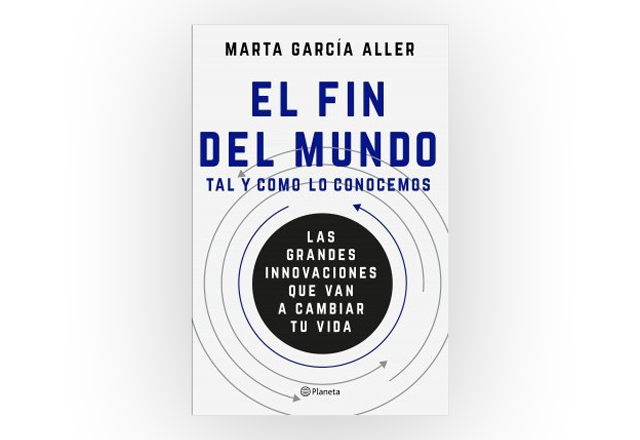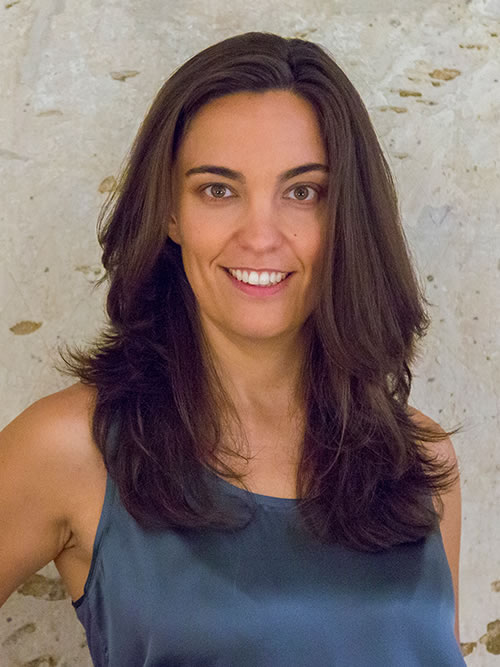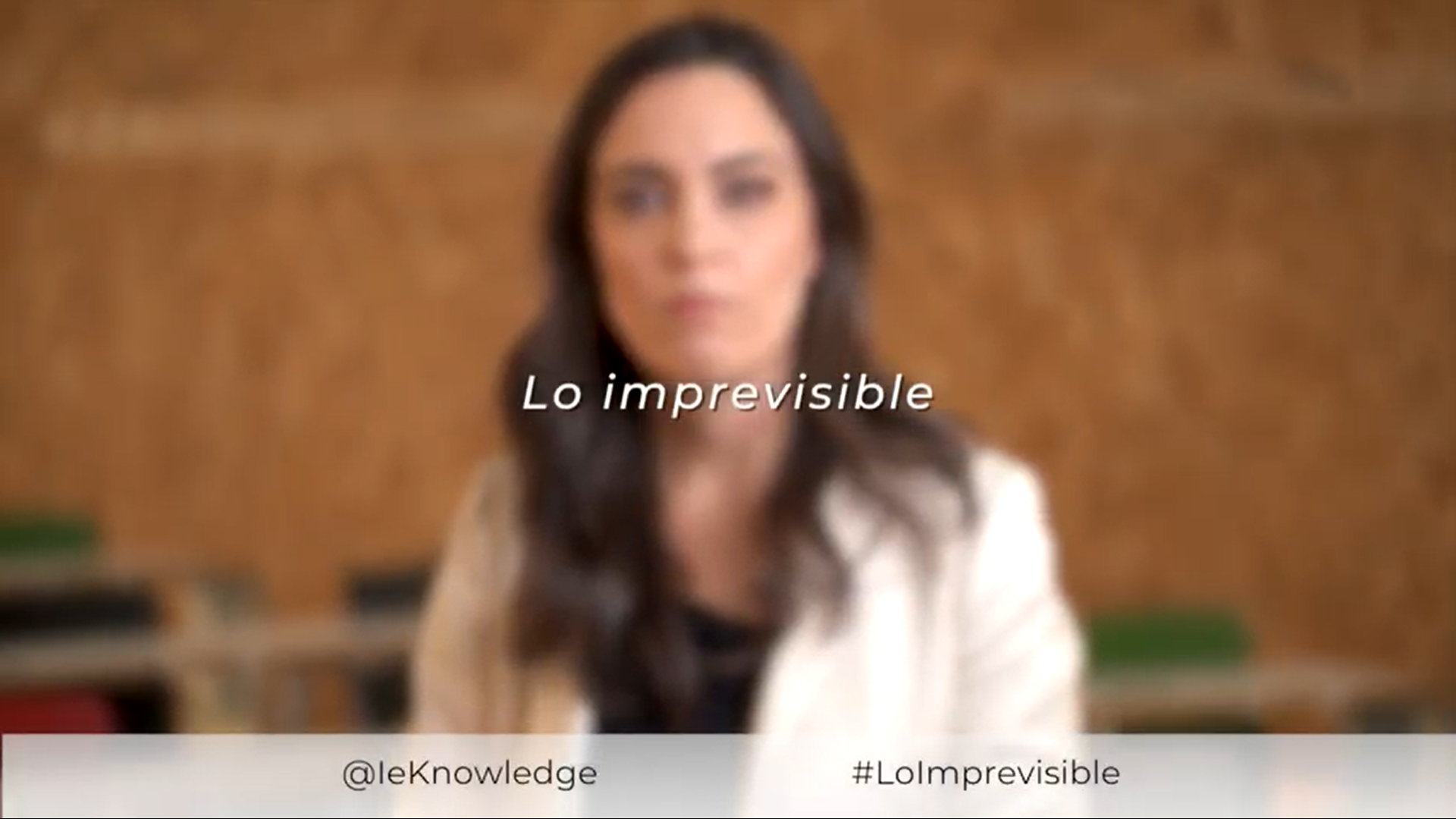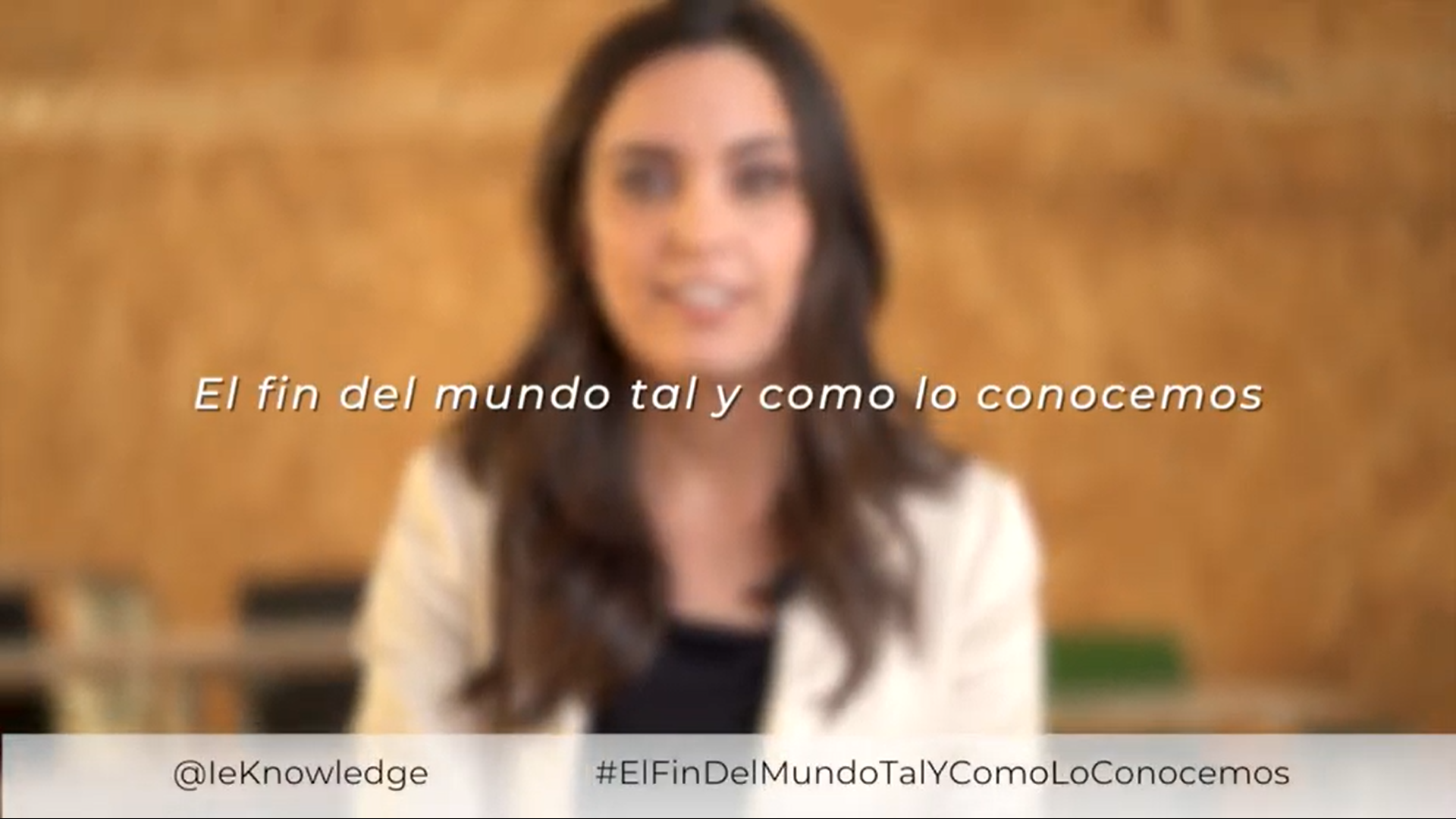Marta García Aller (Madrid, 1980) is a journalist and writer. She writes in “El Confidencial” and also works for Onda Cero and La Sexta. She is an IE professor and she has received some of the most prestigious awards in economic journalism. She likes inconspicuously writing about economy, she drinks her coffee with no sugar and she lived in five different countries before she missed wandering around the streets of Madrid and came back. From time to time, her terrible sense of orientation allows her to feel like a newcomer in her own city.
Marta García Aller
"Now more than ever, we need a technological humanism to help us set the limits of the quantifiable and its effects on society"
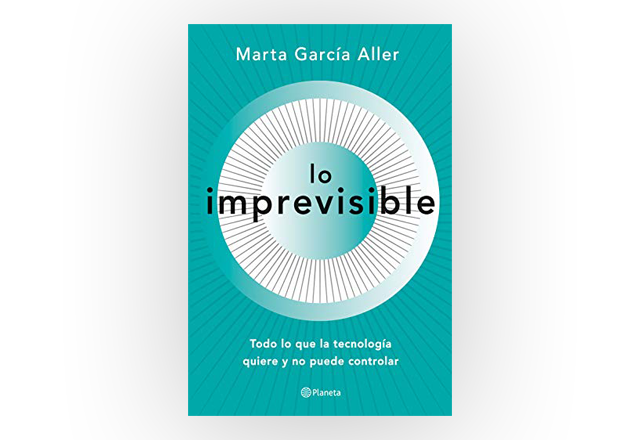
Lo imprevisible
The Unpredictable
Written in Spanish
Artificial intelligence aims for the automation of everything, however, it doesn’t matter how many algorithms there are, the computation will always miss the unpredictable. What we are living today with the Covid-19 pandemic is the best example to illustrate that life is full of situations out of our control. There are many situations that technology cannot predict. This book wants to analyze them. Marta García Aller assures that “they are the key to understand how the connected world is changing our lives, from our TV interests until what we understand by justice and even the future of democracy”.
Buy NowIn the most critical point of the technological promises, when the future seemed able to automate everything, the world stops abruptly because of a virus.
El fin del mundo tal y como lo conocemos
The end of the world as we know it
Written in Spanish
Just like in the 20th century empires that seemed eternal disappeared and ancient moral precepts and scientific dogmas were proved wrong, in the 21st century, we will say goodbye to a lot of the technologies, habits and ideas that surrounded us since we were born. The same that happened to the video-stores, the fax and the USSR, will happen to a great number of professions and devices that we know today, like the steering wheel or the remote control.
How much of what we see today will disappear? The end of languages and of cash registers is around the corner. As time goes by, we slowly forget how was the world before Google and things like our privacy notion, the habit of chatting or even the biological clock are disappearing. We cannot forget the most ambitious of all advances that science hopes to achieve this century: the end of ageing.
